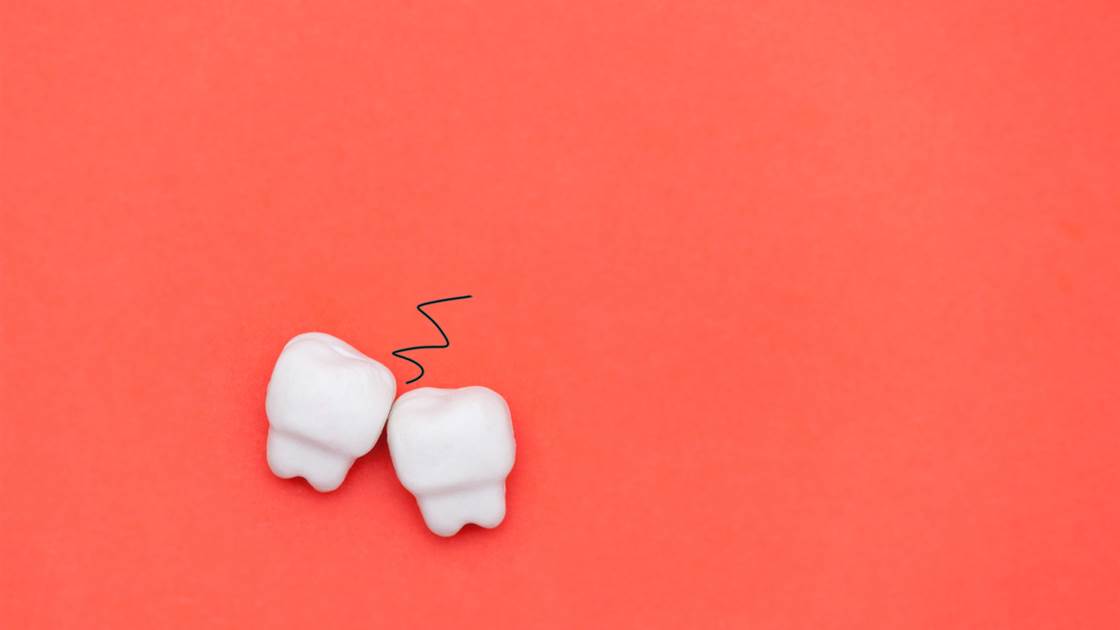What you need to know about Bruxism?
Do you ever wake up with a headache or a sore neck? There are a number of reasons this could be happening, but one you might not be aware of is Bruxism.
‘Bruxism’ is the medical term for teeth grinding. Although we can all be prone to teeth grinding or jaw clenching during occasional times of stress, when Bruxism occurs regularly and for long periods, the pressure on the teeth and gums can cause pain and damage teeth.
Signs To Look Out For
Bruxism can occur during the day, but most often occurs during sleep, so many people impacted by this condition may not be aware they are doing it.
You may wake with the following symptoms and not know why:
- headache
- sore neck
- jaw pain
- earaches
Causes of Bruxism
Potential causes of Bruxism include:
- stress – this is a main cause of Bruxism and an aspect of life that we can try to minimise, but that we can rarely avoid
- long periods of concentration
- illness
- lack of proper nutrition
- irregular bite
- uneven points on a filling
- improper use of medications
- teeth erupting in children
It can also be linked with:
- anxiety
- tension
- physical and emotional pain.
Bruxism can be experienced to varying degrees. Sometimes it can be temporary and will disappear when, for example, a period of high stress is over. However, for many people it is long-term and severe, to the point where family members complain they can hear the grinding. This is particularly common with children.
It’s not just the teeth that can be impacted by Bruxism. The temporomandibular joints (the jaw joints that are used for chewing) can become stiff and painful, and people could experience problems opening and closing the jaw, along with severe headaches.
Many medical doctors recognise Bruxism as a contributor, and sometimes the sole cause of a variety of ailments. In fact, it is not unusual for a GP to recommend a consultation with a dentist.
How is Bruxism diagnosed and treated and what can you do next…
To treat your bruxism there are a number of steps you can take;
- Reduce the stress in your life
- Talk to your dentist who will be able to diagnose if it is Bruxism. They will conduct a thorough examination, and look for signs that might include worn, flattened or chipped teeth, broken fillings, tooth sensitivity and headaches
Once diagnosed they will also discuss your overall health. This will help your dentist to determine the severity of your Bruxism and to develop a treatment plan. For example:
- If it seems your Bruxism is caused by an irregular bite, your dentist might simply adjust your bite, resulting in pain reduction
- Other causes might require longer-term treatment, including creating a custom-fit bite splint that is worn at night and stops the upper and lower teeth from making contact. This light acrylic upper guard will not only protect the teeth from damage, it will also relieve jaw pressure
- In some cases, medications for pain relief or treating inflammation might be initially prescribed to help ease pain and promote relaxation at night
As well as treating the Bruxism, your dentist will also address the damage that it may have caused. Teeth may need restoring, while cosmetic options or orthodontics might be suggested to realign or straighten damaged teeth. People who have experienced significant pain as a result of Bruxism are often surprised and grateful to discover that, after their teeth grinding issues have been diagnosed, their pain has subsided.
- Once Bruxism is diagnosed, and steps are taken to address the condition, it is worthwhile looking into other activities that might help to reduce stress. These might include regular exercise, yoga, massage or meditation – any activity that will help you to relax.
By seeking and following the advice of a dentist for Bruxism, as well as taking steps to reduce the stress in your life, you will not only reduce your pain, you will be well on the way to also improving your general health.
About the Author
Dr Rob Watson is a Dentist, Member of the ADA NSW Council, Representative of Federal ADA, and Founding Member of the Oral Health Advisory Panel. He is also Chair of a panel of volunteer dentists and dental hygienists that provide oral health care for people with cerebral palsy at Cerebral Palsy Alliance at Allambie Heights.
The Oral Health Advisory Panel (OHAP) is a group of independent healthcare professionals with the aim of raising awareness of the importance of good oral health and its impact on general wellness. The Panel aims to take oral health beyond the dental clinic.
Follow the Oral Health Advisory Panel via twitter @OHAPanel to stay up to date with practical advice on good oral health habits.



.jpg&h=90&w=90&c=1&s=1)






